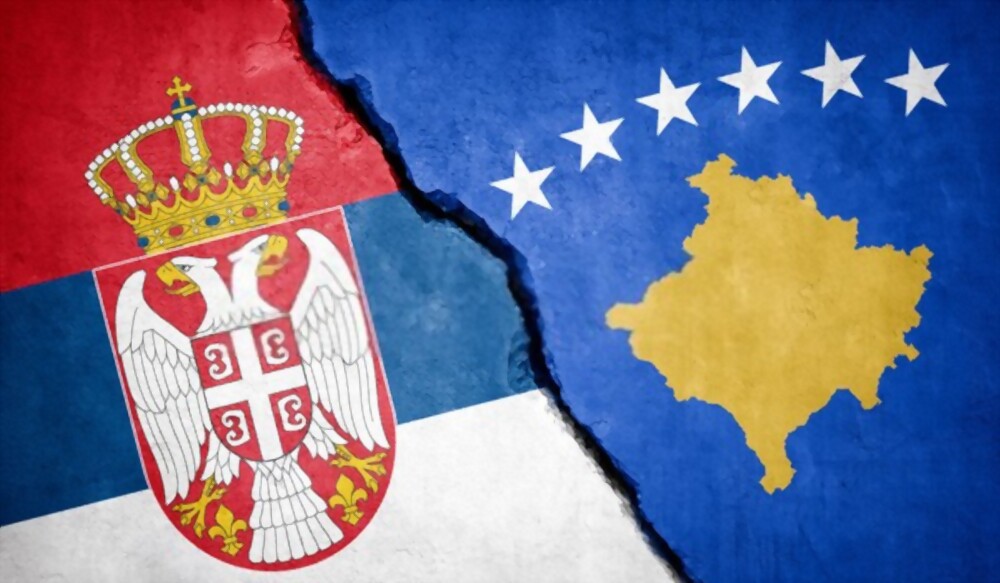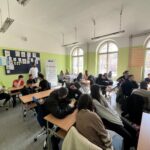Two mediators, Miroslav Lajčak and Matthew Palmer, visited Pristina and Belgrade to set the stage for the expected continuation of the political dialogue between the two sides. That they have come to the region together matters; this symbolically underscores the importance of a joint EU-US action, something that was missing under the Trump administration.
They come at a time however when enthusiasm for dialogue has seriously diminished. In Pristina, EU is taking flak for not delivering on visa liberalization; (allegedly) prioritizing Serbia, which was able to continue European integration because it has been taking part in the dialogue; there is little, if any trust in Belgrade; and with the arrival of the new government, supported in part because of its opposition to the idea of the Association of Serb-majority Municipalities (ASM), chances of reaching a compromise – or simply implement what has already been agreed – have been significantly reduced. Two sentences, often repeated, echo – “we have nothing more to give” and “Ahtisaari (package, referring to decisions that paved the way for Kosovo’s unilateral declaration of independence) was the right measure of compromise”.
Belgrade awaits the continuation of the dialogue in a slightly better position. For nine years, same parties and people have been part of the process, gaining insights and experience. While Belgrade disdains the principle “nothing is been agreed until everything is agreed”, one message that President Vučić repeats to international officials – “we want (to discuss) a compromise” – remains effective. At the same time, global context has been good to Serbia over the previous decade; Kosovo’s statehood remained a matter of contention; and if the ongoing vaccination drive is a success, economic indicators speak of a country posed to walk out of COVID faster than others.
However, surprises may still emerge from the context surrounding the dialogue. Although it seemed that the five “non-recognizers” do not wish to change their position, Greece (whose foreign minister visited Pristina last week) has decided to raise the level of relations to a “political” office, a clear upgrade from technical and economic matters. Greece’s (economic) interest is clear; its companies are present in Kosovo’s market, and for quite some time now it has been possible to travel to Greece with documents issued in Pristina. Mitsotakis government seems willing to be more actively involved in the Western Balkans.
The pressing question is, what agenda can the two mediators serve” in front of two political leaders who will meet in this format for the first time on 15 June. Faced with the impossibility of reaching a breakthrough on other fronts, Lajčak has pragmatically focused on two groups of issues that, despite all their implications, are understood as less controversial – the fate of the missing persons, and mutual financial claims. This was a rational choice; meanwhile parallel process under Trump’s Envoy Rick Grenell was taking most of the attention, resulting in the Washington Agreement. However, little is known of what else will be taken over from the July-September talks between Vucic and Kurti’s predecessor, Avdullah Hoti.
Kurti and his advisers and associates have been repeating – tone down expectations; this will be only first of many meetings. For this government, there is no such issue as “Kosovo status” (“Kosovo is a party in the negotiations, not the subject of” as he likes to say). They are aware that Belgrade cannot recognize and, in a departure from previous governments’ positions, they will not ask for it (because they “do not need it”). Pristina’s real priority now lies with non-recognizers, and how to get them to follow Greece’s suit; and NATO (membership). Belgrade might once again push for the ASM, but two questions here remain open – is President Vucic ready to negotiate; and, what are his priorities vis-à-vis the dialogue and agreements to follow.
One logical way forward is to insist on full implementation of technical agreements that affect the freedom of movement (car plates, ID cards, IBM). Teams of experts, supported by chambers of commerce could continue addressing the removal of various non-tariff barriers (certificates and labels) that hinder free trade. This could open the two governments to renewed cooperation within the framework that Common Regional Market is going to present – once it is established. Agreement on recognition of diplomas is in the works within the Berlin Process, with one issue – status of University in Kosovska Mitrovica – still remaining to be resolved. Cadaster, opening of Mitrovica bridge, all await “full implementation” and may – from the perspective of issues being discussed – be seen as less controversial.
Together, all this may constitute part of an interim agreement, one that would be, perhaps, time-limited, but would still enable Kosovo’s representation in the UN, full participation in various regional formats with status questions out of the way, raising its level of relations with other “non-recognizers” and relieving Serbia of the pressure of explicit recognition – one that would split its society in half.
Of course, such an approach would immediately draw criticism. First, why would Pristina agree to this? Second, if there is no trust, with some of the technical agreements not implemented for years, how can we ensure that this time around everything will fall into place? Also, we need to mind sequencing, to avoid a situation where one party acts contrary to the agreement. And, finally, what if this interim situation becomes a permanent one?
Our answer would be, should we allow ourselves to miss another year, “freezing” the dispute further, without thinking about opportunities lost and the costs incurred?
What if we find a way to reduce this pressure caused by constant presence of this topic in public? Then the elements of a comprehensive solution (as stated in the publication “Balkan Dialogues”: acceptable model of autonomy for Serb community; Kosovo’s representation in the UN; status of Serbian Orthodox Church and its heritage; economic cooperation) could be discussed more thoughtfully.













